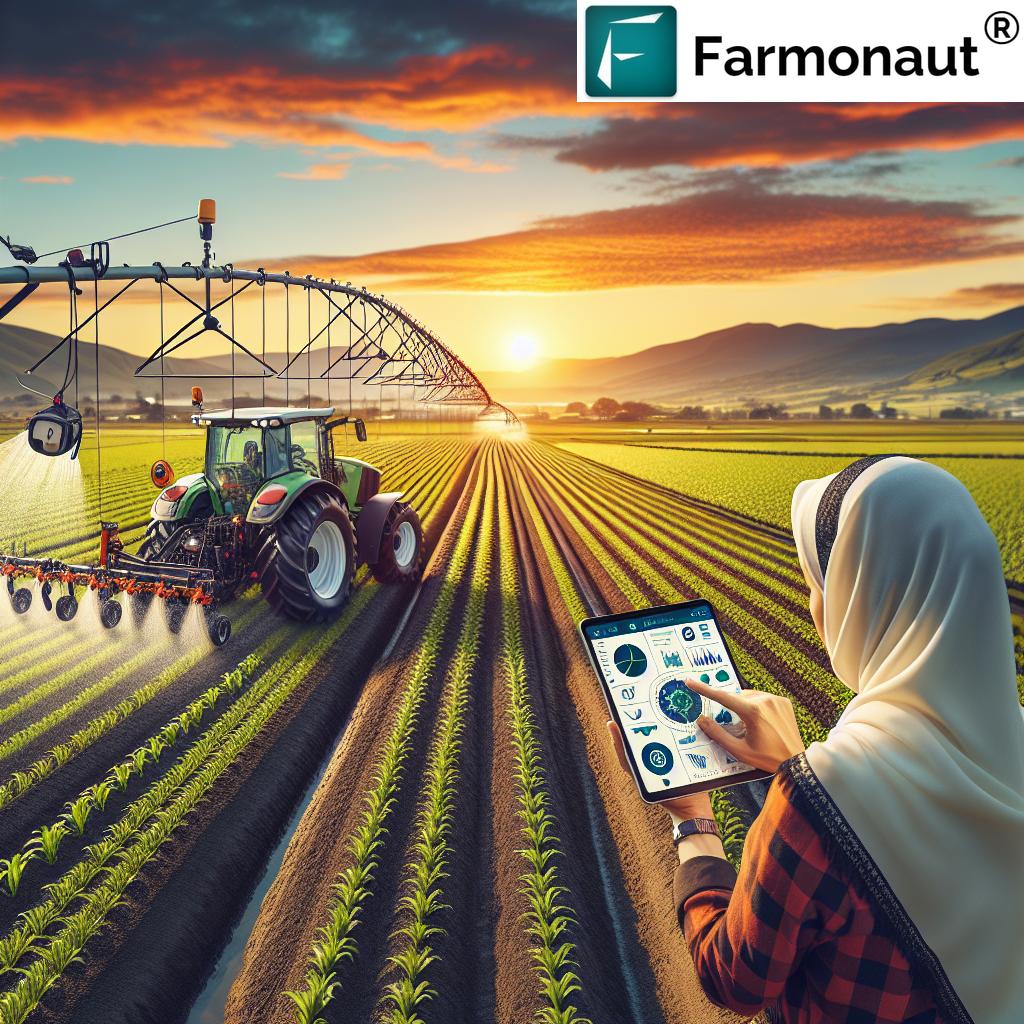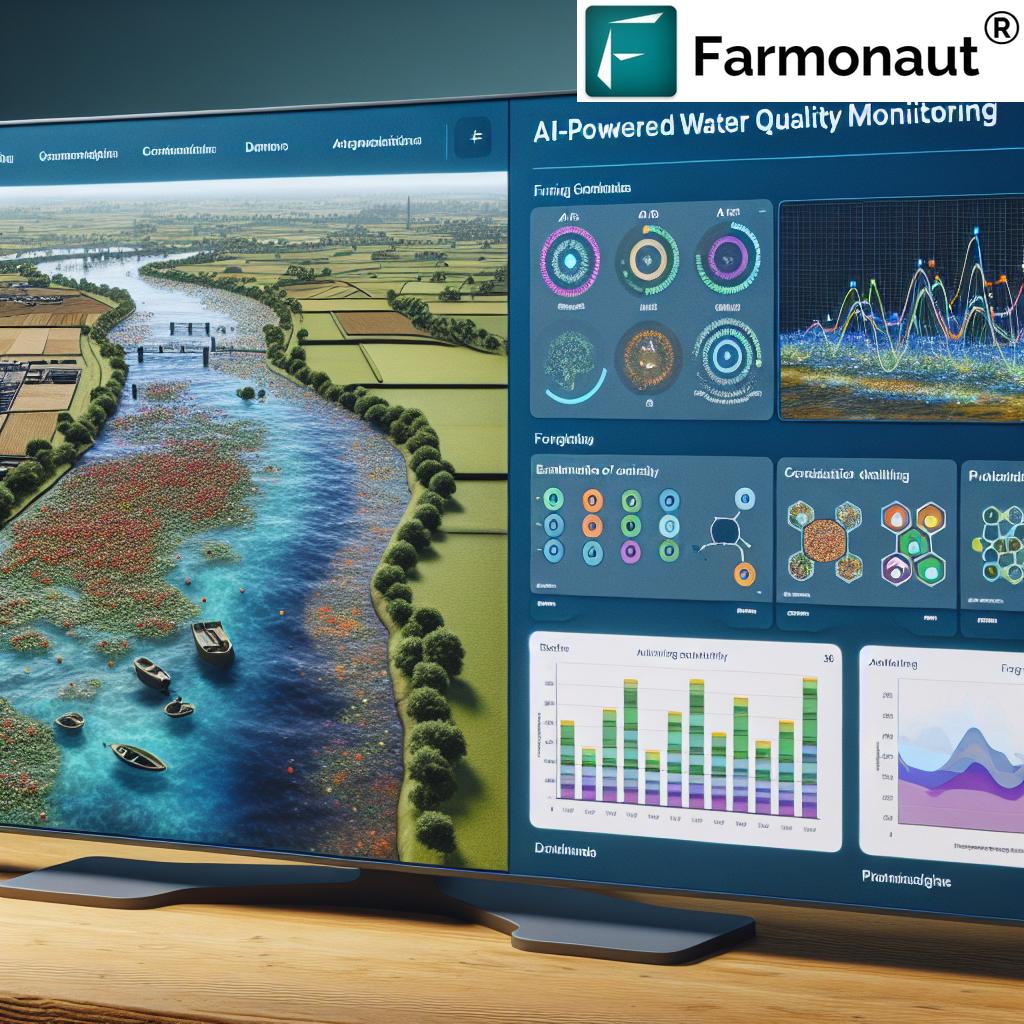Seasonal Horticulture Jobs UK with Visa Sponsorship 2025: Trends, Roles & Opportunities
“In 2025, UK horticulture may require over 70,000 seasonal workers, many through visa sponsorship programs.”
“Recruitment for UK seasonal horticulture roles increased by nearly 30% between 2022 and 2024, reflecting labor shortages.”
Introduction: Why Seasonal Horticulture Jobs Matter
Seasonal horticulture jobs UK with visa sponsorship are fundamental to sustaining the country’s fresh produce supply and food security. The UK horticultural sector—spanning fruits, vegetables, flowers, and ornamental plants—is heavily reliant on temporary labor, particularly during peak planting and harvesting seasons. Over recent years, labor shortages have amplified the need for international workers, with visa sponsorship schemes now a key factor for employers and job seekers alike.
In 2025 and beyond, understanding recruitment trends, available roles, visa processes, and industry shifts is crucial for growers, workers, and recruiters to continue supporting the vital output of UK agriculture.
Overview of Seasonal Horticulture Jobs UK with Visa Sponsorship
The seasonal horticulture jobs UK with visa sponsorship sector involves a range of tasks crucial to the fresh produce market. These roles typically involve cultivating, planting, pruning, and harvesting fruits, vegetables, flowers, and ornamental plants. The intensive labor needs of horticultural farms fluctuate sharply by season and crop cycle, requiring a flexible and robust workforce.
- Seasonal labor enables farms to harvest crops at peak quality, maintain productivity, and meet supply standards for the UK market.
- Common positions include fruit pickers, greenhouse workers, packhouse operatives, and nursery assistants.
- Demand for seasonal horticultural labor is highest from late spring to autumn, reflecting natural crop cycles in the UK.
Recent years—marked by demographic shifts, changing worker preferences, and the aftereffects of Brexit—have exacerbated labor shortages. Fewer EU nationals are willing or able to take on physically demanding jobs, compelling UK growers and farm operators to expand recruitment to non-EU labor markets.
How Does Horticultural Labor Influence Food Security?
Seasonal workers play a vital role in sustaining the UK’s agricultural output and food security by ensuring fresh produce reaches the market and supporting year-round food supply chains. When recruitment shortages occur, output and food security are put at risk—making visa-sponsored labor essential.
Did you know? In 2025, peak labor demands are higher than ever and expected to continue rising as UK horticulture expands and diversifies.
Key Roles in UK Seasonal Horticulture Jobs with Visa Sponsorship
Seasonal horticultural roles are diverse, ranging from highly manual work to more technically skilled positions. While entry-level positions dominate, there remains a spectrum of temporary jobs available, depending on experience and capability.
- Fruit (and Vegetable) Pickers: Manual harvesting of berries, apples, pears, and a variety of vegetables—often outdoors and physically demanding.
- Greenhouse Workers: Planting, cultivating, pruning, and harvesting crops in controlled environments such as tomatoes, cucumbers, peppers, or flowers.
- Nursery Assistants: Care for young plants, cultivating flowers, ornamental plants, and vegetables for commercial sale.
- Packhouse Operatives: Sort, grade, and pack fresh produce for supermarkets and wholesalers—key for storage and distribution quality standards.
- Quality Control Operatives: Ensure food safety and quality standards are met before produce reaches the consumer.
- Team Leaders and Supervisors: Organize and manage picking teams, providing support, training, and guidance, especially during peak harvesting periods.
Each role contributes directly to high productivity, reduces crop wastage, and ensures produce quality—all essential for the UK’s agricultural sector.
When Do These Seasonal Jobs Occur?
– Peak hiring for seasonal horticultural jobs in the UK generally aligns with spring planting (April–June), summer maintenance (June–August), and autumn harvesting (August–October/November).
Recruitment Trends and Labor Shortages in 2025
The horticultural jobs sector in the UK is characterized by sharply fluctuating labor needs depending on the time of year and the crop cycle. As 2025 approaches, demand continues to outpace supply, offering both challenges and opportunities:
- Employment for seasonal horticulture jobs UK with visa sponsorship rose by nearly 30% between 2022 and 2024 due to acute shortages.
- Brexit’s aftereffects and tighter immigration restrictions reduced the pool of EU nationals previously relied upon for these physically demanding jobs.
- Growers and operators have turned to overseas labor markets—including Ukraine, India, and other nations with bilateral agreements.
- Younger domestic workers are less willing to take on seasonal roles, further increasing the need to recruit from abroad.
Recruitment processes are being steadily refined through digital applications, streamlined visa schemes, and improved marketing in source countries. The labor shortage remains a key challenge but also marks an opportunity for those seeking temporary jobs in the UK horticulture sector with visa sponsorship.
How Are Recruitment Challenges Being Addressed?
- Seasonal Worker Pilot Scheme and the SAWS (see below) allow farms to sponsor and employ legal overseas workers at scale.
- New automation and mechanization efforts are being explored but cannot yet fully replace the need for labor—especially for delicate fruit and vegetable crops.
- Ongoing policy reforms aim to broaden visa eligibility and shorten the application process.
Visa Sponsorship Schemes for Seasonal Workers
Visa sponsorship is essential for UK horticulture businesses legally employing overseas workers in seasonal roles. By 2025, the main routes are:
Seasonal Worker Pilot Scheme (SWPS)
- Launched to address acute labor shortages post-Brexit.
- Allows UK farms and businesses to sponsor non-UK nationals for temporary horticultural jobs—typically for up to six months.
- Broadened eligibility now includes countries like Ukraine, India, and others with bilateral labor agreements.
- Employers must prove their legitimacy, adherence to pay and working condition standards, and ability to maintain robust HR processes.
Seasonal Agricultural Workers Scheme (SAWS)
- Originally for EU nationals, now reformed as a formal visa sponsorship scheme for all overseas workers.
- In 2025, aims to streamline applications and broaden eligibility for more non-EU nations—especially given ongoing shortages.
- Focuses specifically on the horticultural sector, covering planting, cultivating, pruning, harvesting, and packhouse operations.
What Are the Core Requirements for Visa Sponsorship?
- Legal entitlement to work in the UK (via an approved sponsorship scheme).
- Employment for up to six months, with no extensions or switching of visa category.
- Sponsoring employers must verify applicant identities, provide adequate working and living conditions, and meet minimum wage standards.
- Failure to comply may result in legal penalties, bans, or loss of sponsorship license.
Visa sponsorship remains a key factor in maintaining the UK’s agricultural productivity in 2025 and beyond.
Visa-Sponsored Horticulture Job Overview by Region and Trend (2025 Estimate)
| Region | Main Crop Types | Estimated Number of Jobs (2025) | % with Visa Sponsorship | Average Pay Range (£/hr) | Peak Hiring Months | Recruitment Trends/Notes |
|---|---|---|---|---|---|---|
| South East (Kent, Sussex) | Berries, Apples, Cherries | 12,000 | 75% | £10.50–£13 | June–Sept | Strong visa demand, automation investments ongoing |
| East Anglia | Vegetables, Flowers | 8,000 | 65% | £10.50–£12.50 | May–Oct | Worker shortages acute; tech trials (robotics) |
| Scotland (Perthshire, Angus) | Soft Fruits, Potatoes | 6,000 | 70% | £10.60–£13 | May–Aug | Limited local workforce, high international reliance |
| West Midlands | Salads, Herbs, Vegetables | 4,500 | 68% | £10.50–£12 | Apr–Sept | Wage incentives, skills development |
| South West (Cornwall, Devon) | Flowers, Field Vegetables | 3,800 | 62% | £10–£11.50 | Mar–July | Early spring demand, new roles emerging |
| Yorkshire & Humber | Field Vegetables, Salads | 5,400 | 67% | £10.30–£12.30 | May–Sept | Competitive pay, staff retention focus |
| Northern Ireland | Potatoes, Soft Fruits | 2,200 | 60% | £10.25–£12 | June–Aug | High sponsorship need due to rurality |
The table above gives a region-specific summary of jobs, crops (e.g., berries, apples, flowers), peak hiring times, and the current rate of visa sponsorship in 2025. This helps job seekers, researchers, and employers assess seasonal workforce needs and trends across UK horticultural hotspots.
Benefits and Opportunities: Why Apply for Seasonal Horticulture Jobs UK with Visa Sponsorship?
Taking up seasonal horticulture jobs UK with visa sponsorship in 2025 offers notable advantages for workers, farms, and the wider sector.
-
Addressing Labor Shortages:
- Visa sponsorships help fill the labor gap caused by a shortage of domestic workers willing to do physically demanding roles.
- Keeps the UK’s food supply chain operational during peak periods and harvesting seasons.
-
Boosting Productivity and Quality:
- Access to a reliable workforce ensures timely harvesting, reduces crop wastage, and maintains produce quality standards for retailers.
- Seasonal workers contribute specialist skills for delicate crops such as berries, improving yield, quality, and profitability.
-
Economic Contribution & Rural Support:
- Supports the economic viability of small and medium farms—key to rural economies and local communities.
- Helps sustain the UK’s agricultural heritage, fostering communities in remote areas where alternative employment can be scarce.
-
Opportunities for Overseas Workers:
- Offers a legal and structured way for overseas candidates to work in the UK, gain international experience, and earn competitive wages.
- Provides extensive exposure to large-scale, modern farming, which can be a stepping stone for career progression.
Additional Perks for Seasonal Jobs UK with Visa Sponsorship
- Many employers provide accommodation, transport, and subsidized meals.
- Some roles include opportunities for skills development and training in food safety, machinery, and logistics.
- Certain schemes support a returnee pathway, enabling high-performing workers to apply season after season.
For overseas workers, securing a seasonal job with visa sponsorship is a unique chance to earn in sterling, travel, and develop professional networks for future opportunities.
Download the Farmonaut app (also available for Android & iOS) for cutting-edge agricultural satellite monitoring and advisory—empowering growers to optimize workforce and crop management.
Challenges Facing Employers and Workers in 2025
While seasonal horticulture jobs UK with visa sponsorship help address acute labor shortages, the system faces significant challenges for both employers and workers:
-
Administrative and Regulatory Burdens:
- Visa processing, eligibility verification, and compliance can be complex—especially for small/medium farms with limited HR resources.
- Regular audits, paperwork, and maintenance of sponsorship license increase employer workload.
-
Worker Welfare:
- Reports of substandard accommodation, inconsistent pay, and long hours continue in some sectors.
- Ensuring safe, fair, and respectful working conditions is vital for maintaining both recruitment and sector reputation.
-
Dependence on Overseas Labor:
- Heavily reliant on temporary migration for low-skilled jobs raises sustainability questions for the future.
- Disruptions to visa schemes (e.g., due to geopolitical changes or pandemics) could threaten crop output.
-
Pay and Living Standards:
- “Living wage” debates continue, as some roles offer only minimum wage and few benefits outside of peak periods.
- Many regions compete for the same labor pool, leading to wage volatility and recruitment difficulties.
-
Season Length and Job Security:
- Visa limits (max. 6 months) prevent work continuity or progression for many workers who might seek permanent employment.
The industry must continue to innovate, prioritize worker welfare, and streamline processes to remain competitive and ethical in 2025 and beyond.
The Future of UK Horticultural Labor: Automation, Technology & Policy
The future of seasonal horticultural labor in the UK is unfolding across three key dimensions: policy evolution, technology integration, and workforce strategy.
Policy Trends
- Continued government reforms to expand visa quotas, improve application responsiveness, and foster legal overseas recruitment.
- Greater focus on worker protection, housing, and welfare standards—as a means to attract, retain, and safeguard seasonal labor.
Automation & Mechanization
- UK horticulture is increasingly investing in mechanization—such as robotic fruit picking, packhouse automation, and digital monitoring tools.
- Automation is most advanced for large-scale, uniform crops but many horticultural tasks (like berry picking) remain challenging to automate entirely due to their delicacy.
Sustainable Farming & Traceability
- There’s a rising demand for traceability and carbon footprinting solutions (see Farmonaut Traceability and Carbon Footprinting Tech), helping large growers comply with market and regulatory standards.
- Technology—from remote monitoring to AI advice—will be at the core of managing seasonal labor efficiently and sustainably.
Digital Recruitment and Workforce Management
- Online registration, job matching, and digital onboarding platforms are revolutionizing worker recruitment and compliance.
- Enhanced data tracking helps employers maintain robust HR processes and comply with seasonal visa checks.
- Satellite-based data and AI advisory platforms can optimize resource and workforce management throughout the crop cycle.
Harnessing Technology in Horticulture: Farmonaut Solutions
As technological advancement accelerates in the agricultural sector, leveraging modern solutions is key for sustainability, productivity, and compliance.
-
Satellite-Based Monitoring & AI Insights:
- Services like Farmonaut’s monitoring platform use real-time satellite data, AI-driven crop health assessment, and weather analytics. This helps growers monitor fields, forecast labor needs, and optimize harvest timing for maximum yield and quality.
-
Blockchain Traceability:
- Traceability tools (Farmonaut Product Traceability) assure retailers and consumers of authentic, ethically produced food. Blockchain adoption boosts accountability and trust—valuable for farms hiring overseas labor under sponsorships.
-
Resource & Fleet Management:
- Farmonaut Fleet Management helps rural businesses optimize movement of seasonal labor, transport of fresh produce, and logistics planning across remote field sites.
-
Support for Loan and Insurance:
- Farmonaut’s crop loan and insurance solutions use satellite data to help growers and agricultural finance providers verify field activity, reduce fraud risk, and streamline financial access in rural communities.
-
Environmental Compliance & Carbon Tracking:
- By leveraging Farmonaut’s carbon footprinting and environmental monitoring, UK farms can comply with sustainability requirements, reduce emissions, and demonstrate responsible production practices to buyers and sponsors.
Want to integrate satellite-powered insights or manage large-scale farm operations via API? Explore our API and read the Farmonaut API Developer Docs for integrations tailored to your agricultural business needs.
Farmonaut’s tools help growers, businesses, and governments make informed decisions, optimize seasonal workforce allocation, and ensure compliance with modern environmental and labor standards in UK agriculture.
Frequently Asked Questions (FAQ)
What are seasonal horticulture jobs in the UK?
These are temporary positions—mainly fruit and vegetable picking, planting, greenhouse work, packhouse, or nursery jobs—crucial for helping UK farms get produce to market in peak seasons.
Who can apply for seasonal horticulture jobs UK with visa sponsorship?
Non-UK nationals from countries with bilateral labor agreements (such as Ukraine and India) can apply under government-backed visa sponsorship schemes, provided they meet eligibility criteria.
How long can I work with a seasonal horticultural visa in the UK?
Typically, up to six months—there are no extensions, and you cannot switch to another category from within the UK.
What crops and regions are most in demand for seasonal workers in 2025?
Berries, apples, flowers, and field vegetables across South East (Kent), East Anglia, Scotland, and other rural hotspots. Refer to the region-wise table above for specifics.
What are average pay rates for seasonal horticultural jobs in the UK?
Pay ranges from £10.25–£13 per hour, depending on crop, location, and time of year, with additional benefits often provided by employers.
Are accommodation and food provided?
Many employers offer subsidized accommodation and meals; details vary by job and region—always check the job description.
What documents do I need for a UK Seasonal Worker visa?
Valid passport, job offer with sponsorship from a registered UK employer, proof of eligibility, and health clearance (if required).
Is there potential for permanent residency?
No, these are strictly temporary visas for seasonal roles and do not provide a pathway to permanent residency or settlement in the UK.
How can Farmonaut’s technology help UK farms in managing seasonal labor?
Our satellite monitoring, AI advisory, and resource management tools help optimize crop yield, assess field readiness for harvesting, monitor environmental impact, and streamline labor needs—making seasonal workforce deployment more effective and data-driven.
Conclusion
Seasonal horticulture jobs UK with visa sponsorship form the backbone of the country’s agricultural productivity and food supply in 2025. As labor shortages persist, the system of legal visa sponsorships remains crucial for addressing workforce needs, supporting rural economies, and maintaining high standards in crop production and quality.
The landscape is changing—automation, policy reform, and technology platforms like Farmonaut are making operations more sustainable, transparent, and efficient. Growers, employers, job seekers, and technologists must all work together to ensure the UK’s horticulture sector remains resilient, competitive, and ready for the demands of 2025 and beyond.
For the latest in crop management, environmental monitoring, and digital farm optimization, download the
Farmonaut app or
explore our API and
developer tools
to empower your farming and business operations.
Seasonal horticulture jobs UK with visa sponsorship: a vital bridge between global workforce trends and local agricultural excellence—ensuring fresh produce reaches every table, every year.














